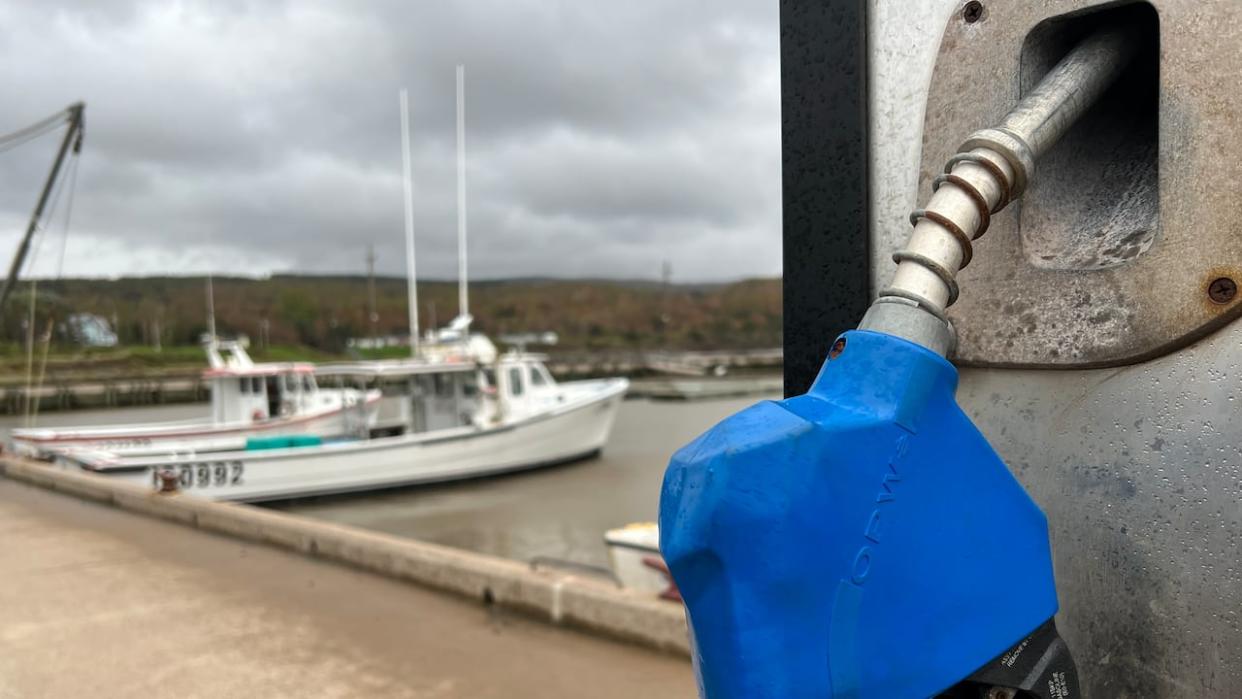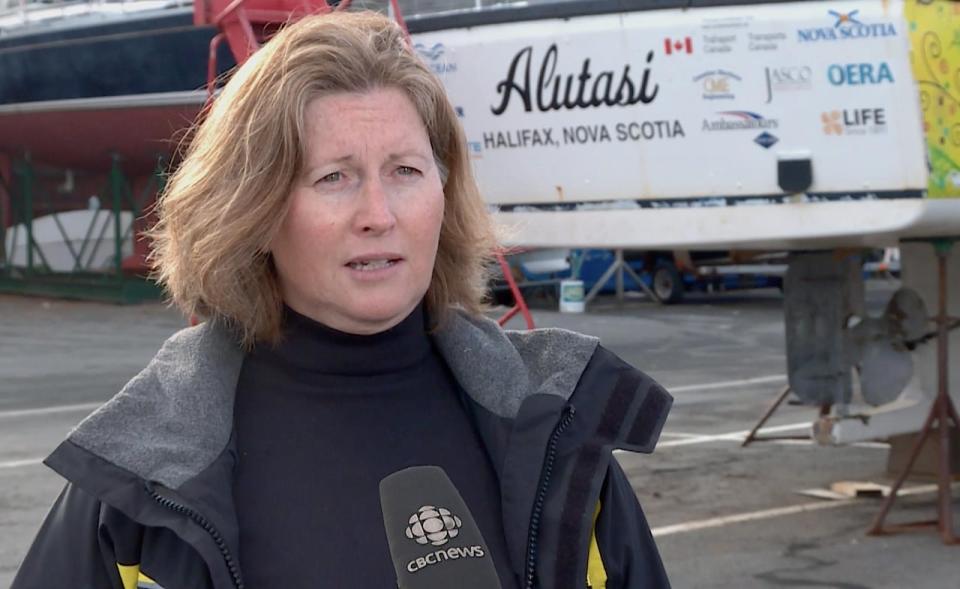Potential move to electric lobster fishing boats hauls in opposing opinions

Lobster fishing captain Andrew Arbuckle wants to buy an electric boat. One problem — they don't exist yet.
"I think it's feasible because it's the same battery that can be used in our cellphones, in our cars, and it could be applied to this," Arbuckle said.
The boat building industry is on the cusp of new electric options. Companies are inventing new designs and investing in unique ideas.
But adoption could be slow, since the biggest group of customers — fishing crews in Southwest Nova Scotia — generally reject the idea.

Andrew Arbuckle stands near his diesel-powered fishing boat, which he hopes one day could be powered by electricity like his pickup truck. (Brett Ruskin/CBC News)
Aboard a prototype diesel-electric hybrid fishing boat, Sue Molloy, CEO of Glas Ocean Electric, lifts a floor panel from the deck. She points to a metal driveshaft that runs along the centreline of the boat, disappearing towards the propeller.
"Above that shaft, we have put our electric motor," she said, pointing to a steel cylinder the same size and shape as a tightly-rolled sleeping bag.

The inner workings of a prototype diesel-electric hybrid fishing boat. (Brett Ruskin/CBC News)
The Glas Ocean system is designed to allow captains to use their traditional diesel engine — and existing boat — to travel from shore to their fishing spot.
Once the crew starts dumping or hauling traps, they can turn off the diesel engine and engage the electric motor.
She said the fuel savings mean the upgrade could be paid off within five to 12 years, depending on the boat's design and usage.

Sue Molloy is the CEO of Glas Ocean Electric. (Brett Ruskin/CBC News)
"After you've paid off your system, you essentially have a very low cost of operations compared to before," Molloy said.
Glas Ocean isn't alone. A company on P.E.I. has built a custom hybrid fishing boat with a diesel and electric system working as one unit. In Lunenburg, another company has created a small all-electric work boat. There are also plans for the creation of the first electric lobster fishing boat in Membertou First Nation on Cape Breton Island.
'It ain't gonna work'
Not everyone agrees that electric boats are the future.
The vessels and techniques used to fish in the Northumberland Strait are different from those in southwest Nova Scotia.
Dan Fleck is executive director of the Brazil Rock Lobster Association, which represents fishing crews in Lobster Fishing Areas 33 and 34, covering the region from Eastern Passage to Digby Neck.
He says boats in his area are bigger, go out farther, and work in tougher conditions.

Dan Fleck says fishing captains in regions he represents don't yet trust the technology of electric boats, compared to traditional diesel engines. (Brett Ruskin/CBC News)
Fleck said other regions "can leave at four in the morning and be back at four in the afternoon, and they can recharge their batteries at night and then go again. But here, that's not practical."
He said crews in his area often spend seven or more hours getting to their fishing spot, 12 hours checking traps, and then seven hours coming back. Sometimes crews could be gone for multiple days.
"With batteries, it only looks like a one-way trip," Fleck said.

Reynold d'Entremont does not think electric boats would meet the demands of crews that need to travel long distances to fish. (Brett Ruskin/CBC News)
Fishing crews in the Pubnico area agreed with Fleck's assessment.
"It's wishful thinking," said Reynold d'Entremont. "It ain't gonna work."
When asked if d'Entremont would use an electric boat if he were given one for free, he said: "No, I'd take the money. I'd sell it."
"We would like to reduce our carbon footprint," continued Fleck.
"We would like to help the environment, so we can improve our business costs. But an electric motor on a 50-foot lobster boat? The technology has not caught up to the way we fish. It's not here yet. It won't work," he said.
'Oh, this isn't so scary'
Back on Molloy's hybrid boat, she says small- and medium-sized fishing boats (as well as tour boats) could reap big benefits from harnessing electrical power.
Part of the hurdle facing the industry is convincing fishing captains to adopt this new technology. But it could be as simple as showing them in person.
"One of the best compliments we've had, is we had a fisher come on board and he said, 'oh, this isn't so scary.' And it was a really great validation of the work we're doing," she said.
Mirroring the transition to electric cars, some fishing captains are waiting until there is reliable coastal charging infrastructure before exploring electric boat options. Likewise, utility companies can't justify investing in that new infrastructure until there is a substantial customer base.
"Similar to buying an electric car," said Arbuckle, the open-minded fishing captain, who already owns two electric vehicles. "There are far more options now than there were even two years ago."
He said more options on the water will lead to more adoption by curious captains.
MORE TOP STORIES


